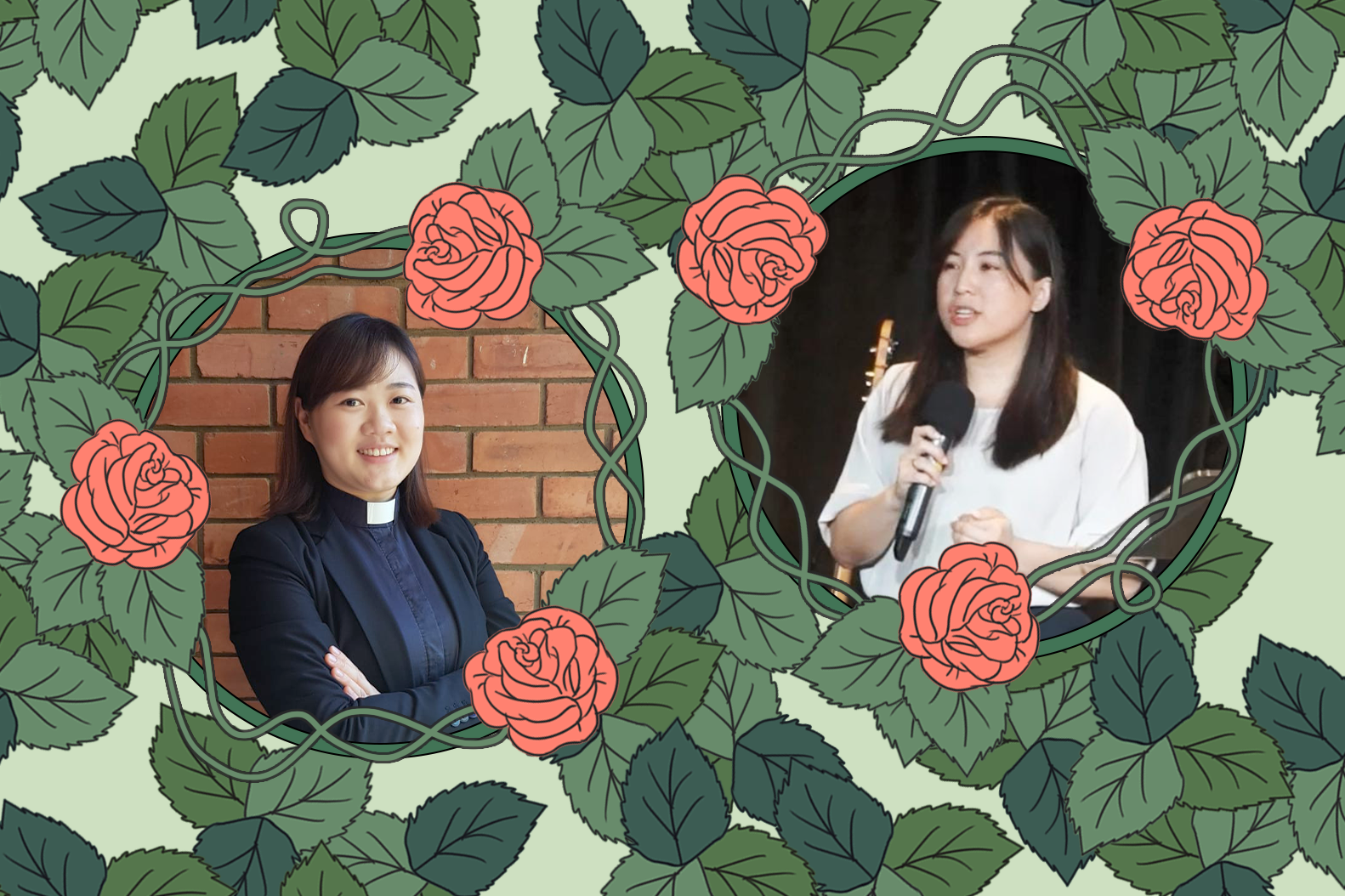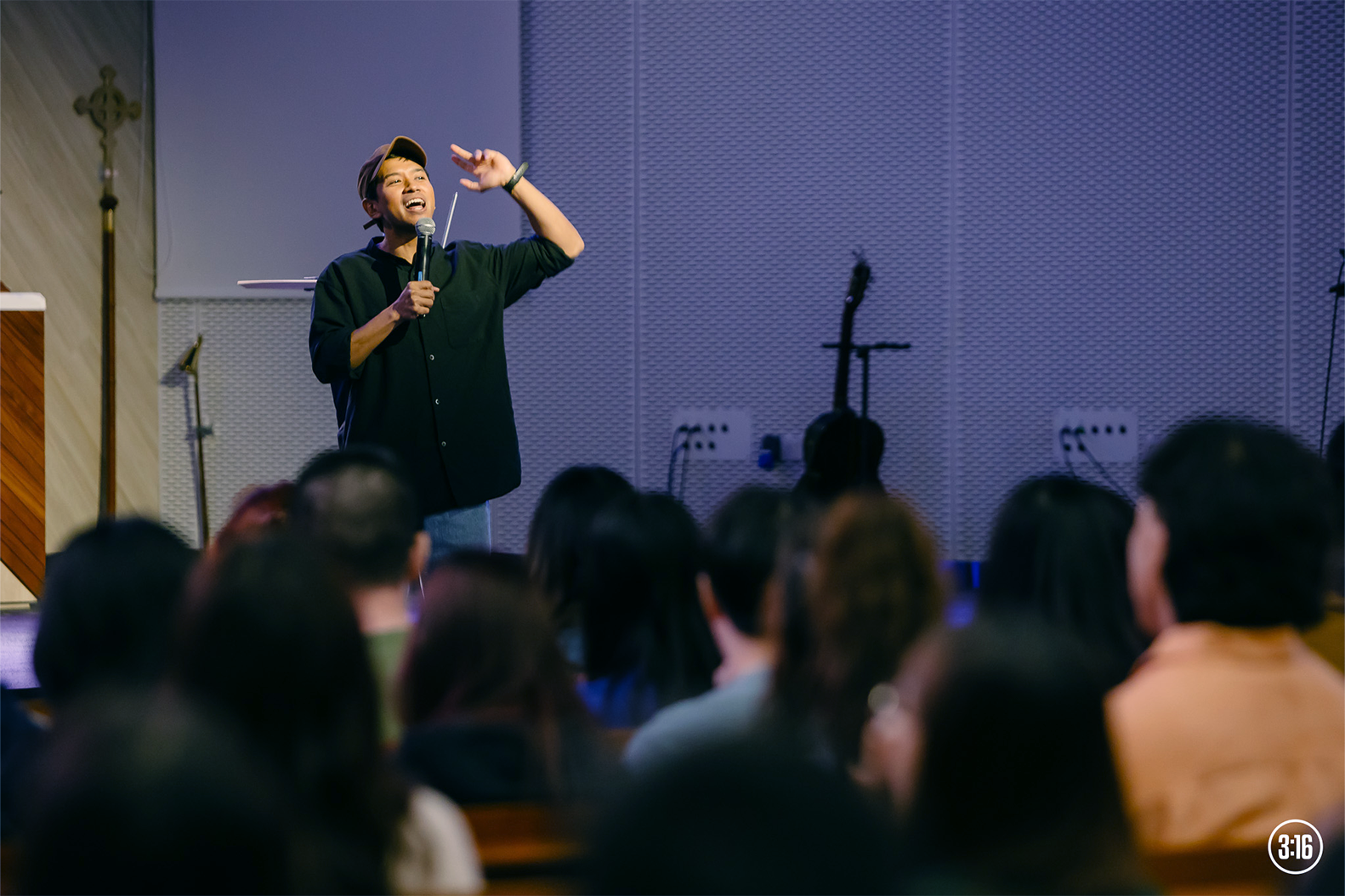Relatively speaking, female pastors are few and far between.
That it is why I thought it was really nice to hear the stories of Rev Peace Choi and Pastor Amadea Seow who were invited to speak during a recent gathering of women working in churches and parachurch organisations.
Organised by Macrina, the group’s name is inspired by Saint Macrina, whose life made an impact on her brothers and early church fathers Basil the Great and Gregory of Nyssa.
During the event, Pastor Peace (Charis Methodist Church) and Pastor Amadea (Maranatha Christian Assembly) shared about their callings, as well as their joys and challenges in ministry.
As a woman who is considering going full-time in the future, I was all ears.
How the call came
Having been exposed to ministry work from a young age through their parents who were also serving in similar capacities, entering full-time ministry was never really out of the question for both women.
Nevertheless, their decision to become a pastor was more than merely a matter of following in their parents’ footsteps.
At 23, Pastor Amadea wanted to serve in missions or church ministry. However, when she ended up as an educator instead, she found joy in working with children too.
“No, God! I just wanna be here!”
As time went by, the problem was that she became too comfortable in the teaching profession.
“I was like, ‘No, God! I just wanna be here! I’ve got a stable job and income; I’m enjoying my life,'” confessed Pastor Amadea, recalling her Jonah moments of running away from God’s call.
“But God said, ‘No, you have to come out.’ So He was pushing me.”
Taking the step of faith, she decided to enrol in Bible school and be trained in counselling.
Today, the 36-year-old is a part of the Assemblies of God Singapore‘s NextGen Commission committee, working with children, youths and young adults. She is also a clinical counsellor.
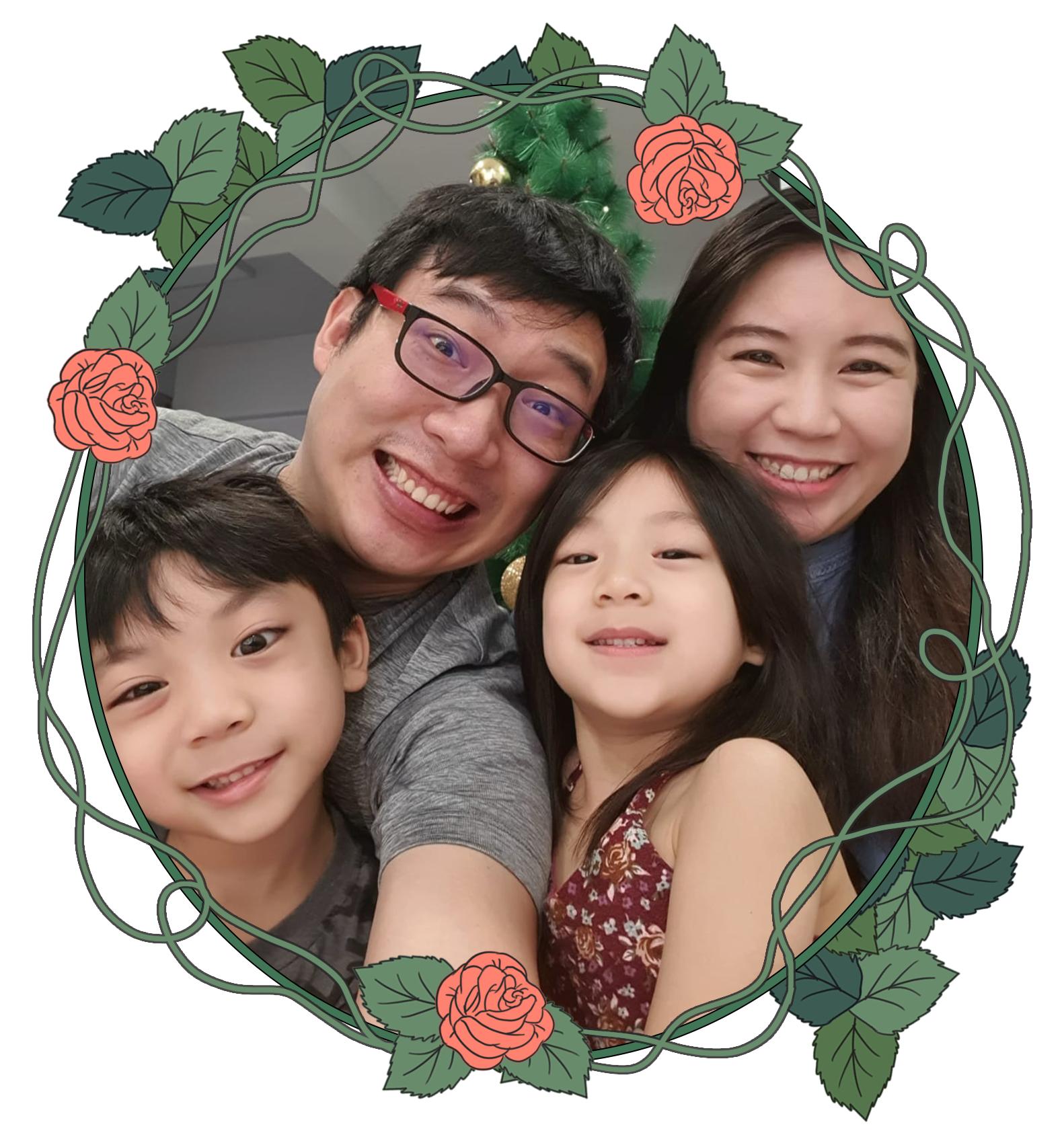
For Pastor Peace, the crossroad came when she was about to graduate from university.
As she was researching and preparing to fill out applications, she found that she couldn’t bring herself to write about the lengths she was willing to go for these jobs.
“Perhaps it was the seed that God had planted in me, but I just couldn’t write it. I realised that I had already given my life to God, and I was not going to dedicate my whole life for these companies,” shared Pastor Peace.
Some time later, God also revealed to her that writing all those job applications was her attempt to do what everyone else was doing, even when this didn’t fit well.
“It was really my effort in trying to find a connection where there wasn’t,” she added.
It was only after a conversation with her mother who encouraged her to reflect on what she really wanted to do, when Pastor Peace realised that she had always wanted to devote her full attention to ministry.
Even as a student juggling both school and church work, she wished that she could be focusing on the latter entirely. In the past, people had also affirmed her gift of leadership.
The final push came when she kept hearing churches appeal for young pastors for consecutive months.
And today, the 36-year-old is pastoring the English congregation in her church, which is part of the Methodist Church in Singapore’s Chinese Annual Conference.
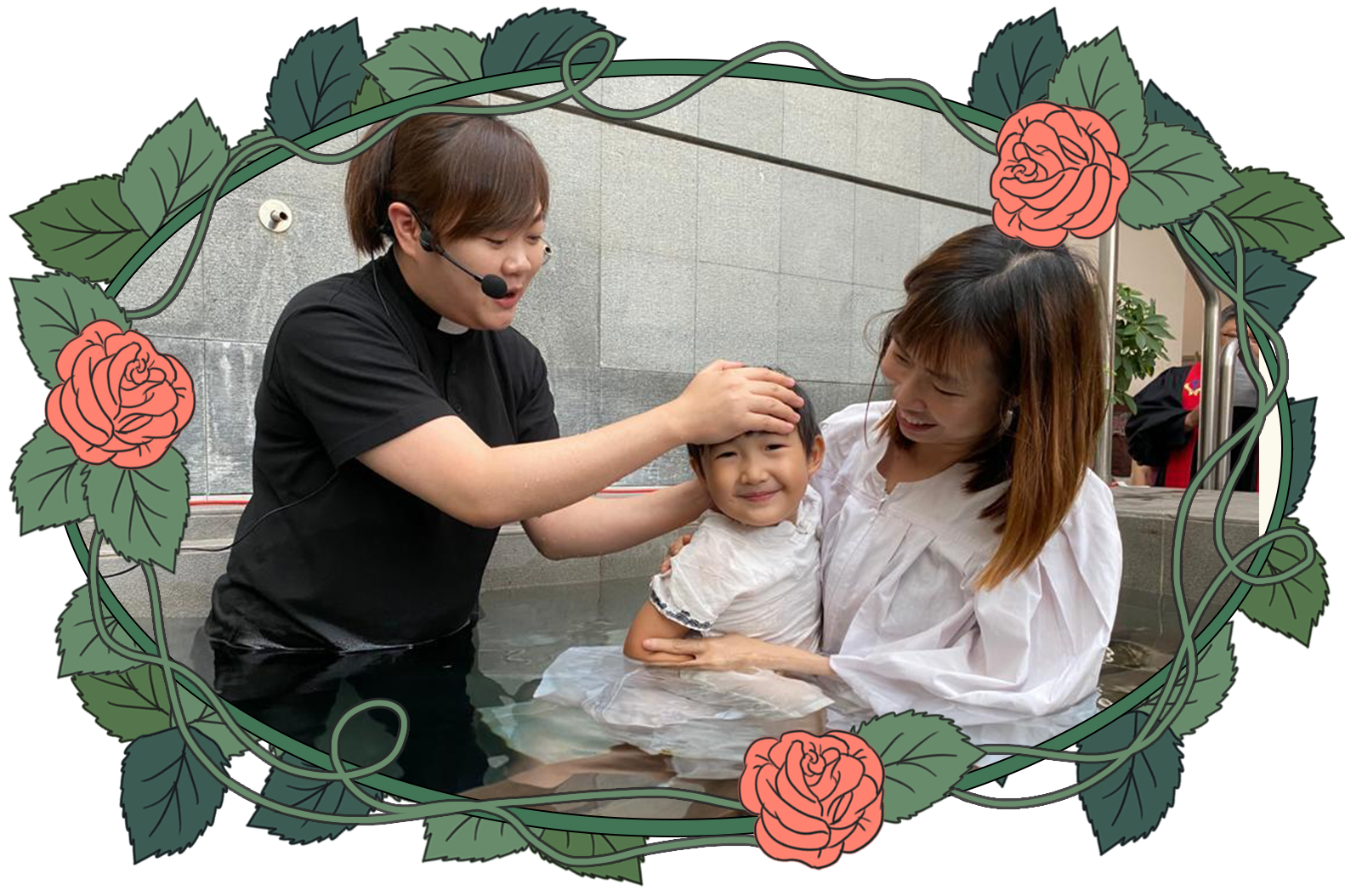
Challenges and community
But even after choosing to make the tough decision to go full-time, it was by no means an easy path for both women.
“When I entered (ministry), there was no hand-holding. You’re in there, and people kind of expect you to know what you’re doing. It’s really through that process that you have to depend on the Lord,” recalled Pastor Amadea.
As a result, both pastors came to recognise the importance of having a strong spiritual community to support them through the ups and downs.
“There are lots of wonderful people around, such as friends who will pray alongside you, or ministers who are in other ministries who we can call and ask for help,” said Pastor Amadea, adding that she also turns to her parents to discuss issues.
In fact, one of her joys of ministry is seeing how she has gained new friendships and deepened her relationships with different people in her life through her line of work.
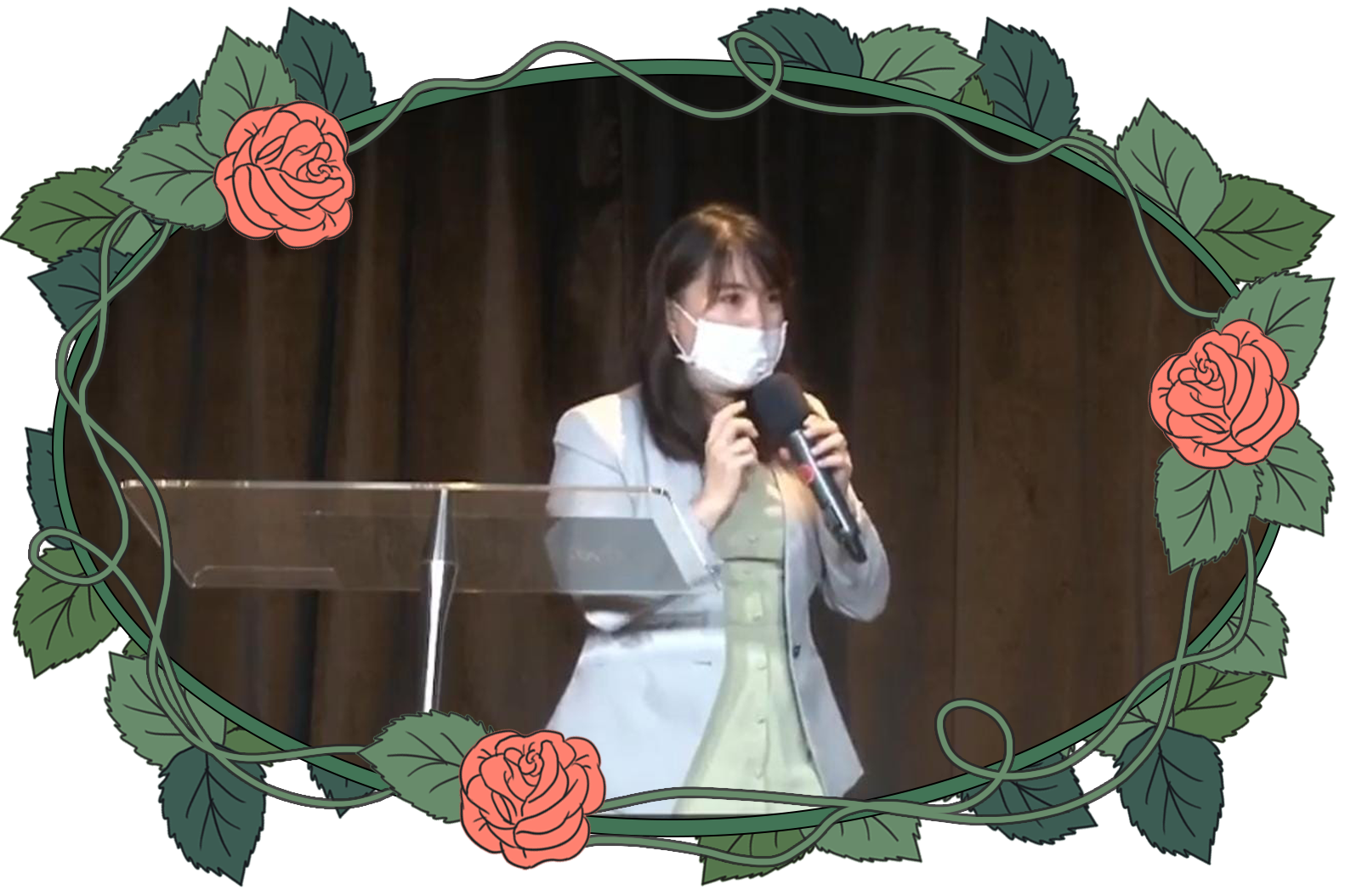
Pastor Peace agreed, sharing that in the two churches that she had been posted to so far, God had always given her a small group of two or three people with whom she could share her heart for ministry with.
“I feel this is like the model of Jesus and the closest three with him — the truth of how small-group accountability functions,” she said.
Describing them as “fire put together”, she believes that having such a circle of friends helps her to continue to burn with passion for God.
Burn, not burnout
Although being with people like that can be edifying, as introverts, both pastors also highlighted the importance of safeguarding personal time for refreshment to avoid being depleted.
“The problem with us ladies is that we always want to be there for somebody. And more so as we become mothers — the maternal instinct just kicks in naturally,” noted Pastor Amadea.
Admitting that she wished someone could have given her such advice when she was younger, Pastor Amadea has learnt the importance of having boundaries.
“Ministry is 24/7. There will always be people in need. It’s not that you can’t give, but you must know what you’re giving, how you’re giving and how you’re being filled,” she said.
“Sometimes there are certain things where God says, ‘you know what, let somebody else do that.'”
Similarly, Pastor Peace also talked about the need to forge her own practices and rhythms in a profession that requires so much social interaction.
“God gives me the grace to meet those needs, to meet people and minister to them, but I need to balance that out with quiet time or decompression time to recharge.
“If I talk to too many people in one day, at night I can’t even talk to my own husband,” she joked.
Sharing how she grew up watching her mother – the pastor’s wife – and father doing ministry together, she points out that things are different in her case, since both she and her husband are pastors.
“My mother was like, ‘It’s okay to have just one pastor in the family you know,'” she quipped.
“But I’m not called to be a pastor’s wife; I’m called to be a pastor.”
A balancing act between ministry and family
As someone who is single, I was also curious to know how Pastor Amadea and Pastor Peace were able to strike a balance between meeting the needs of ministry and their own families.
Pastor Amadea has two children and another on the way, while Pastor Peace has one child.
“Our children are also part of our personal ministry — how we nurture these young kids into children that can really impact the community and church is really through how we live our life in the household,” explained Pastor Amadea.
“Not being there for them is also exemplifying that God’s not being there for them because that’s their immediate (impression of God)… and how children view relationships is based on how much interaction they have with their parents.”
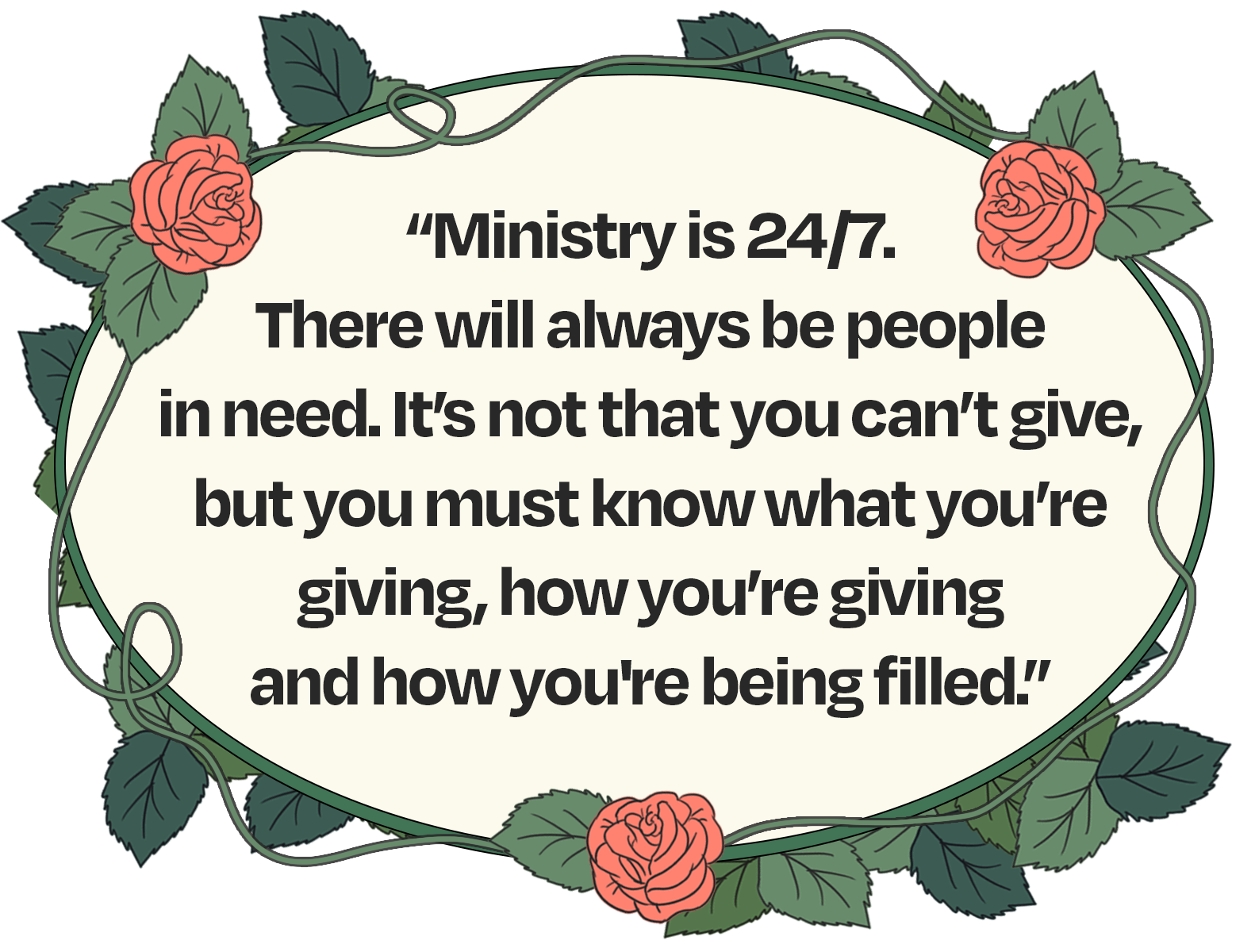
Pastor Peace is also familiar with the struggles of being a pastor’s kid.
Observing how there have been many kids of missionaries or pastors who have left the faith, she opined that perhaps they were “sacrificed on the altar of ministry”.
This could have led them to resent the church and God for taking their parents away.
“Their parents basically told them — we have been called to ministry, which is more important than you. And they have turned away from God because of that.
“That’s something that my husband and I definitely didn’t want to do,” said Pastor Peace.

As such, both women have learnt to structure their ministry commitments, so that they don’t compromise on family time.
For instance, Pastor Peace works out a schedule with a husband to ensure that they both have a maximum of two ministry nights a week, so that they are still able to bond with their young son.
Build your own pyramid of priorities, suggested Pastor Amadea.
“Boundaries are not something that is fixed; you can adjust them according to different seasons in life,” she said.
Is there a glass ceiling?
When asked about the struggles they face as women in a field that can be very male dominated, both felt that they have generally been well-supported.
Pastor Amadea believes that many churches are relatively forward in their thinking, and so women usually take on an equal load compared to the men.
“For some guys, they can sometimes do more because their wife does the household chores. But I think that’s more of a personal issue,” she said.
Nevertheless, both pastors recognise that not all women in full-time ministry have journeys that are smooth sailing.
For example, Pastor Peace has heard from other pastors who have encountered people who disapproved of female leadership in the church.
“While they’re okay with female pastors in general, to be the head of the church (Pastor in Charge) is something that is difficult for some people to accept,” she said.
As a woman who is also considering full-time work in the future, I do hope that in time to come, all our churches will have supportive environments, so that women can serve fully in the way that they have been gifted by the Holy Spirit.
As Pastor Peace aptly put it: “Being a pastor is an office that is given to us by God; it’s not something we earn.
“In the office of the pastor, there are specific things that I’m called to do. And in all of these, it’s not because I’m capable or good at it, or whether I’m a female or not. God will give me the grace to do it.”
As we celebrate International Women’s Day and honour female ministers in our churches, may both men and women be given the opportunities to serve the Lord as co-labourers in whatever capacity He calls us to!
- What has God called you to do specifically? Are you finding it hard to obey Him fully?
- What are some boundaries you need to establish for yourself so that you can remain faithful to your calling?
- Who are the strong women of God in your life and what do you admire most about them? Drop them a note to encourage them!


